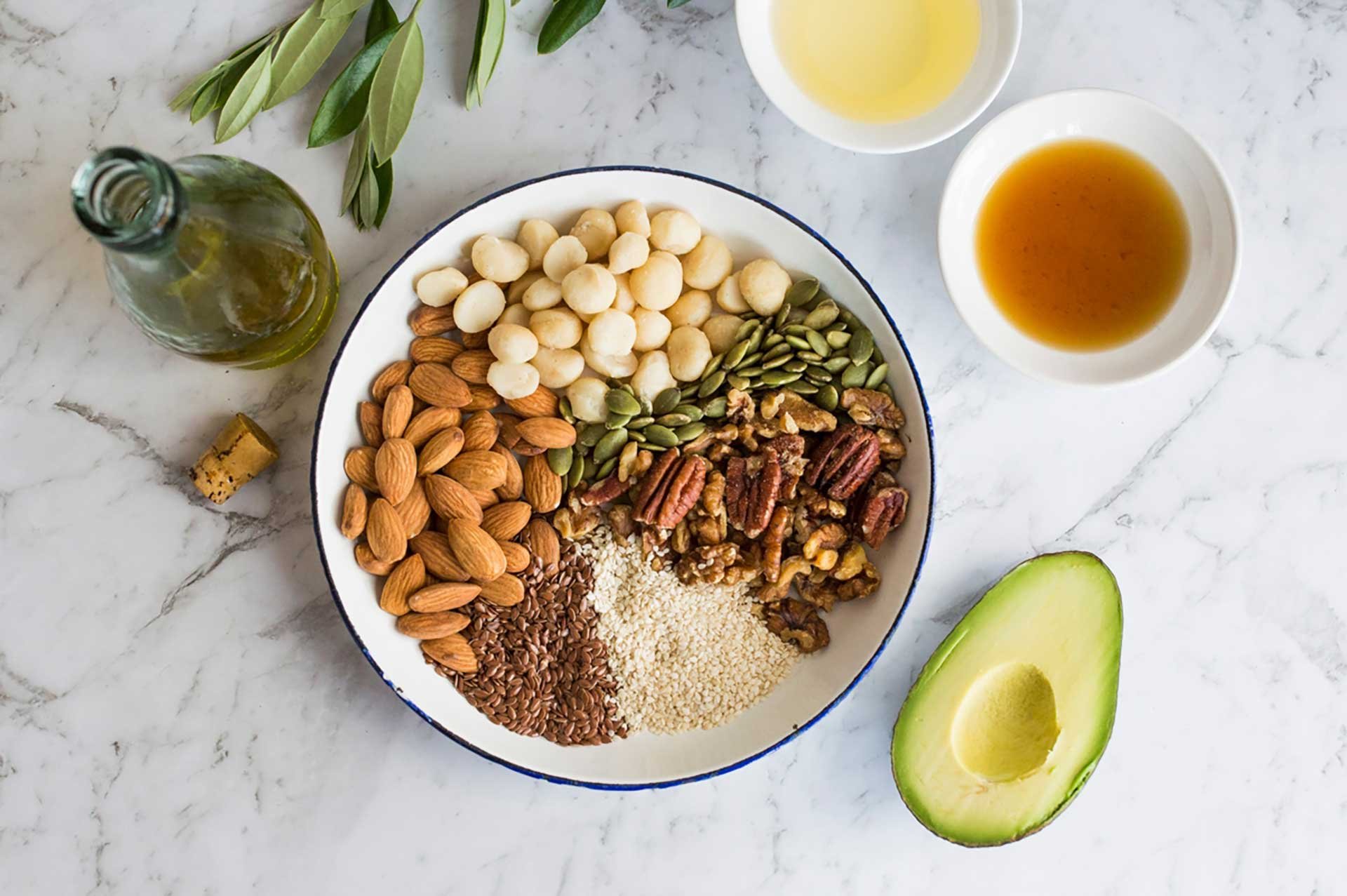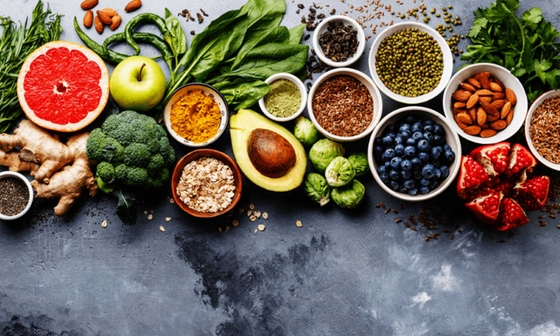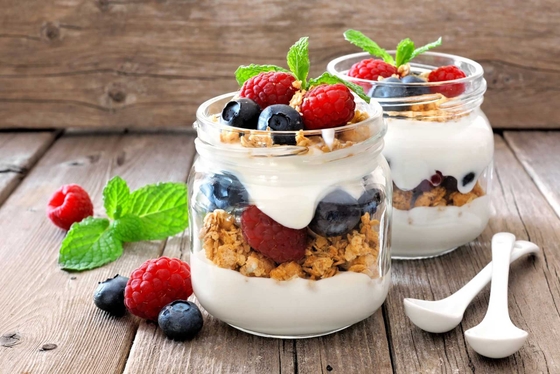
Fats, oils and heart health
Key takeaways
5 min read
- The type of fat you eat is important – some are good for your heart, some are not.
- Monounsaturated and polyunsaturated fats support heart health.
- Saturated and trans fats can raise cholesterol and increase heart disease risk.
- Choose healthy monounsaturated and polyunsaturated fats from foods like nuts, seeds, avocados, olives, and oily fish.
Include healthy fats and oils
Why are fats important for heart health?
Fats play an essential role in the body. However, the type of fat you eat has a significant impact of your blood cholesterol and overall heart health. Understanding which fats to include more of, and which to limit, can help you follow a heart-healthy eating pattern.
There are four main types of fats:
- Monounsaturated fats
- Polyunsaturated fats - omega 3’s and 6’s
- Saturated fats
- Trans fats

Healthy fats
Include more of these:
- Monounsaturated fats – found in avocados, nuts, seeds, and olive oil.
- Polyunsaturated fats (Omega 3 and 6) – found in oily fish, flaxseeds, walnuts, and certain oils like canola and sunflower.
Benefits:
- Improve cholesterol levels
- Lower blood pressure
- Reduce inflammation
Unhealthy fats
Limit these:
- Saturated fats – found in butter, coconut oil, palm oil, fatty cuts of meats and poultry skin, processed meats like salami and bacon, cream, cheese, cakes, pastries, many processed foods and takeaway foods.
- Trans fats – found in deep-fried foods, baked goods, processed snacks and products with hydrogenated oils.
These fats raise bad (LDL) cholesterol and increase heart disease risk. Of all fats, trans fats are the most harmful.
How much fat should you be eating?
The type of fat you eat is more important than the total amount. Eating more healthy fats and limiting unhealthy fats is a key step towards a heart-healthy eating pattern.
How to get the right balance of fats
Small changes can make a big difference. Here are our top tips to make heart-healthy choices everyday.
Make simple healthy fat swaps
- Eat a handful of unsalted nuts (30g) daily.
- Enjoy seafood 2–3 times per week.
- Use healthy oils, store properly and choose the right oil for your cooking method.
- Swap butter for avocado, tahini, nut butters or margarine from healthy oils.
Limit junk food
Reduce biscuits, pastries, pizza, and deep-fried takeaways.
Trim fat
Remove visible fat and skin from meat and poultry.
Avoid processed meats
Replace with tuna, eggs, legumes or lean meats.
Eat more legumes
Include beans, lentils or chickpeas in at least 2 meals per week.
Check labels
Avoid products with ‘hydrogenated oils’.
Cook heart-healthy recipes
Use healthy oils, nuts, seeds and vegetables in meals.
Looking for more information on the science behind our recommendations?
We understand there is a lot of nutrition misinformation, and it’s important to find information from credible and trustworthy places. The Heart Foundation’s Heart Healthy Eating Pattern recommendations, and associated resources, are backed by the latest science and made with the unique needs of Australians in mind.
Curious about the evidence that informs our recommendations? Read more about our evidence reviews and position statements.
More healthy eating tools and resources
- We have plenty of resources to help you follow a heart-healthy eating pattern.
- Build your skills and confidence in the kitchen with our tips and tools for planning, shopping, and cooking healthy meals.
- Explore our full range of recipes for delicious, budget-friendly and easy to prepare heart-healthy meals you can make at home.
- Discover our collection of free recipe e-books, from ‘Family recipes on a budget’ to '5 Ingredient Recipes' plus many more.
- Get four weeks of easy-to-follow dinner recipes, shopping lists, tips and other helpful information to make healthy eating easy with our free Heart-Healthy Dinner Plans.
- Looking for more information? Explore our resources on healthy eating and recent articles.
You might also be interested in...

How to follow a heart healthy eating pattern
Follow these easy tips to boost your heart health and embrace a heart-healthy eating pattern.

Fruit, vegetables and heart health
Learn how fruits and vegetables can lower your risk of heart disease, stroke, and type 2 diabetes. Get tips to boost your daily intake for better heart health.

Dairy and heart health
Explore how milk, yoghurt, and cheese affect heart health. Learn about dairy's role in a heart-healthy diet and the latest evidence-based recommendations.
Last updated23 May 2025
Last reviewed23 May 2025